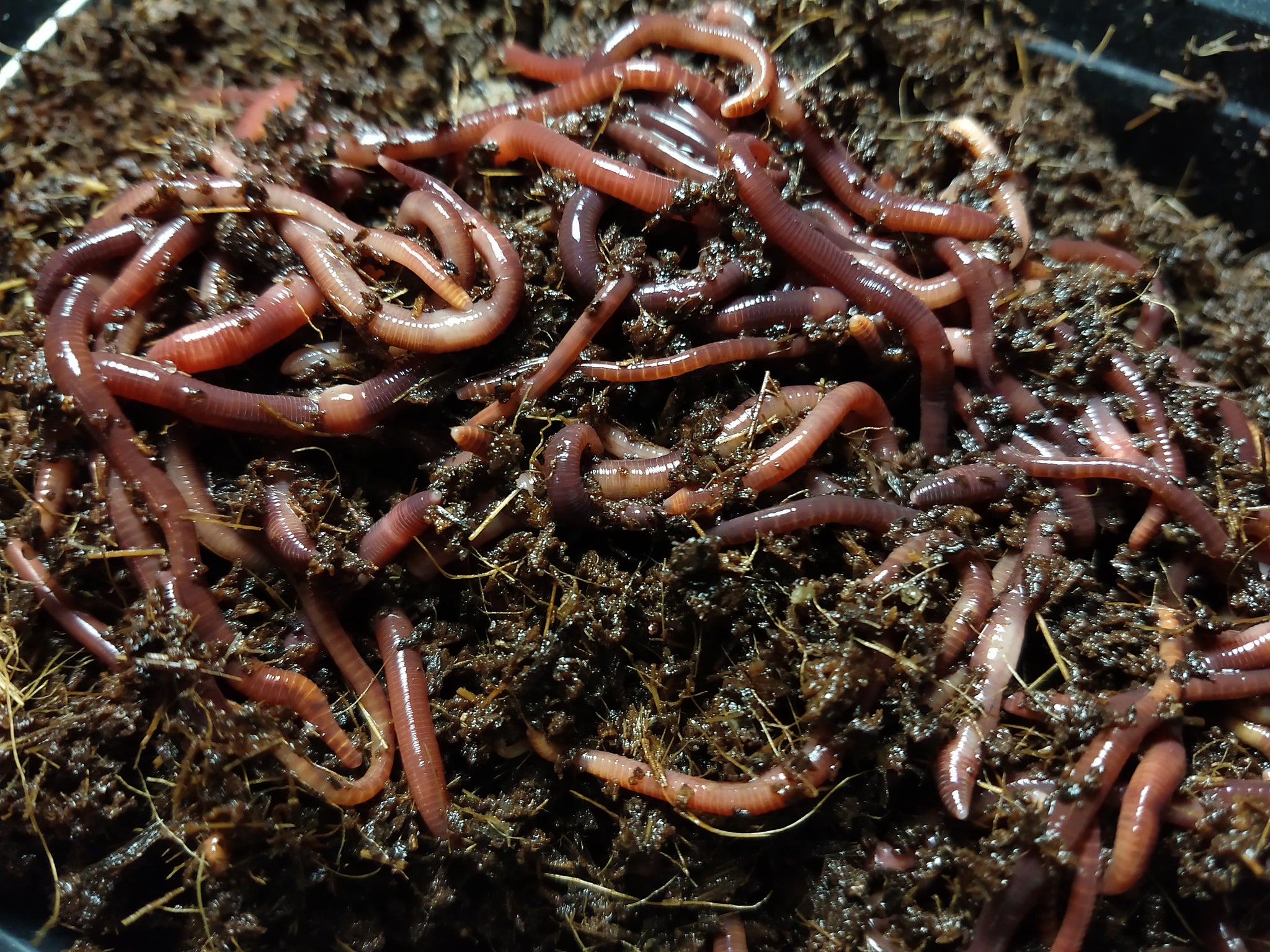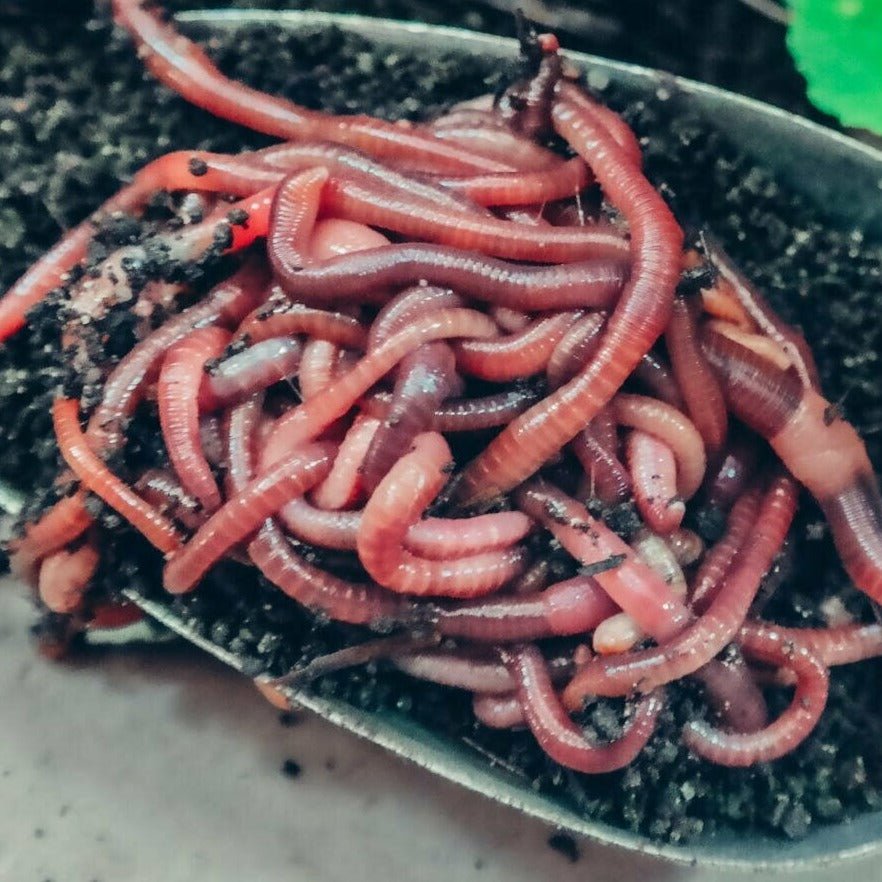Why Red Wigglers Are the Finest Choice for Lasting Gardening
Red wigglers, frequently identified for their role in composting, provide a compelling instance for lasting gardening through their distinct organic features. Their capability to transform natural waste right into nutrient-dense vermicompost considerably improves soil fertility and structure, while their all-natural burrowing habits freshens the dirt, cultivating optimum conditions for plant roots.
Benefits of Red Wigglers

In addition, red wigglers contribute to nutrition biking. The microbial activity linked with red wigglers aids in the disintegration of natural product, fostering a thriving ecological community that benefits plants.
Additionally, making use of red wigglers in gardening reduces waste, as they can eat cooking area scraps and various other organic products that would or else end up in land fills. This not just minimizes greenhouse gas exhausts but additionally sustains the principles of absolutely no waste. Finally, the incorporation of red wigglers right into sustainable horticulture techniques dramatically enhances soil wellness and promotes vigorous plant growth.
Composting With Red Wigglers
Composting with red wigglers is a lasting and efficient approach for changing natural waste right into nutrient-rich compost. These worms, specifically the Eisenia fetida varieties, prosper in decomposing issue and can consume their weight in organic product daily. This ability not just increases the decay procedure however likewise enhances the total efficiency of composting.
To start composting with red wigglers, one need to develop an appropriate atmosphere for them. A worm bin can be constructed from numerous products, consisting of plastic or wood, and need to include bed linens made from shredded paper, cardboard, or coconut coir. It is vital to maintain a balanced diet regimen for the worms, containing veggie scraps, fruit peels, coffee premises, and smashed eggshells, while preventing dairy, meat, and oily foods, which can bring in parasites.
Regular monitoring of wetness levels and temperature level is vital to make sure the worms stay productive and healthy. As they refine the natural waste, red wigglers produce vermicompost, a dark, crunchy substance abundant in beneficial bacteria. This vermicompost can be made use of to enhance the performance of compost systems, making them an invaluable property to any kind of lasting gardening endeavor.
Enhancing Soil Health
Soil health and wellness is a keystone of lasting gardening, as it directly affects plant growth, nutrient availability, and environment strength. Red wigglers, or Eisenia fetida, play a crucial duty in improving dirt health and wellness via their organic procedures and all-natural behaviors. These earthworms take in raw material, damaging it down right into nutrient-rich castings that enhance soil framework and fertility.
The castings produced by red wigglers are brimming with useful bacteria, which assist to additionally decompose raw material and make nutrients a lot more easily accessible to plants. This microbial task fosters a balanced and diverse soil ecological community, necessary for keeping soil wellness in time. Additionally, red wigglers freshen the soil as they delve, promoting better drain and root infiltration, which is vital for healthy and balanced plant development.
Moreover, the visibility of red wigglers adds to the mitigation of dirt disintegration and compaction. Their activity advertises the formation of steady dirt accumulations, improving the soil's capability to retain dampness and nutrients. By incorporating red wigglers into lasting horticulture techniques, garden enthusiasts can efficiently improve dirt health, producing a durable structure for a growing and resilient garden ecological community.
Supporting Plant Development
Healthy and balanced plants depend on a diverse series of factors, with nutrition schedule being one of the most vital (Red Wigglers Free Shipping). Red wigglers, recognized medically as Eisenia fetida, play a pivotal role in enhancing nutrient availability with their distinct food digestion process. As these worms take in organic matter, they simplify into nutrient-rich spreadings, which are an exceptional source of important macronutrients and micronutrients, such as phosphorus, nitrogen, and potassium
These spreadings not only supply an easily easily accessible nutrient resource for plants but likewise improve dirt structure, advertising better aeration and water retention. This boosted soil atmosphere sustains root development, enabling plants to accessibility water and nutrients much more effectively.
Furthermore, the microbial activity linked with red wigglers adds to a growing soil environment. Beneficial bacteria prosper in the existence of worm go to my site spreadings, better improving nutrient cycling and accessibility. Therefore, plants exhibit boosted growth, greater returns, and raised strength versus pests and diseases.

Lasting Horticulture Practices
Integrating red wigglers into my sources horticulture techniques exemplifies a broader dedication to sustainability. These remarkable earthworms not only improve soil fertility however likewise align with eco-friendly techniques that reduce ecological effect. Sustainable horticulture methods emphasize the usage of organic materials, reliable water monitoring, and biodiversity, all of which can be dramatically boosted by the presence of red wigglers.
Firstly, red wigglers add to vitamins and mineral biking via their digestion of natural waste, changing it right into nutrient-rich vermicompost. This improves the dirt, lowering the requirement for synthetic plant foods that can harm local ecosystems. Secondly, sustainable horticulture advertises water conservation; when integrated with red wigglers, the boosted soil structure increases water retention, consequently decreasing irrigation needs.
Red wigglers support a healthy and balanced environment by promoting microbial life in the dirt, which in turn advantages plant health. In this way, red wigglers serve as an important part of a sustainable gardening approach, advertising environmental equilibrium and strength.
Conclusion
In final thought, red wigglers serve as an important possession for lasting gardening, successfully transforming organic waste right into nutrient-rich vermicompost. Welcoming red wigglers in horticulture practices not just sustains dirt wellness yet additionally straightens with broader environmental objectives, thereby establishing a foundation for sustainable farming methods.
In the world of sustainable gardening, red wigglers, or Eisenia fetida, offer many advantages that boost both dirt health and plant growth. In conclusion, the consolidation of red wigglers right into lasting horticulture techniques dramatically enhances soil health and promotes energetic plant growth.

Lasting gardening promotes water conservation; when incorporated with red wigglers, the improved soil framework enhances water retention, consequently decreasing watering demands.
Embracing red wigglers in horticulture techniques not only sustains soil health and wellness yet additionally aligns with wider ecological objectives, thus developing a structure for sustainable agricultural methods. Red Wigglers Free Shipping.
Comments on “Where to Buy Worms in North Carolina for Better Soil and Healthier Gardens”